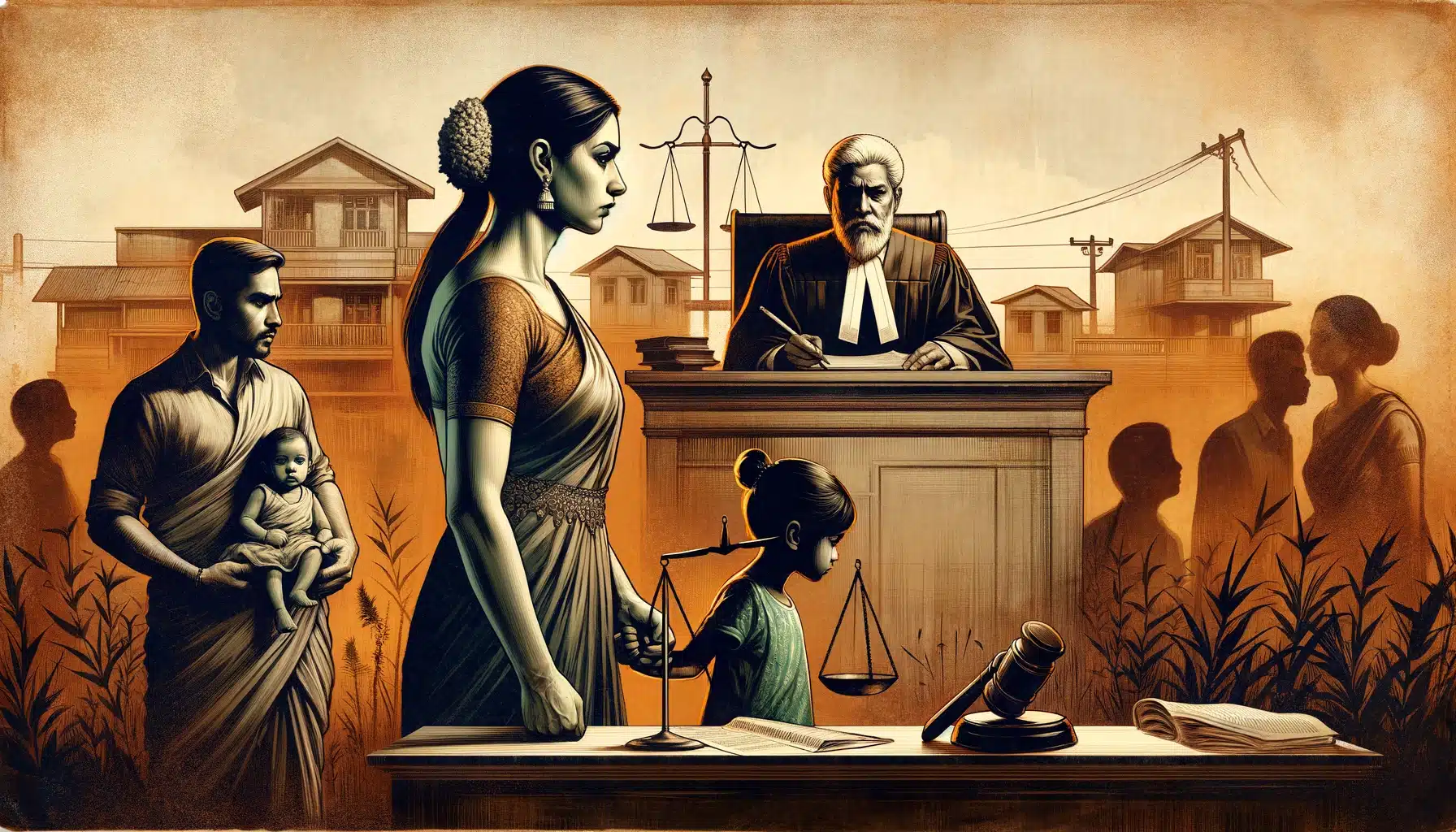Citation: (2014) 1 SCC 188, AIR 2014 SC 869 Date

Citation: (2014) 1 SCC 188, AIR 2014 SC 869
Date of Judgement: 18th October, 2013
Court: Supreme Court of India
Bench: Ranjan Prakash Desai (J), A.K. Sikri (J)
Facts
- Respondent was a divorcee and re-married to appellant on 10th February 2005 at Devgad Temple in Mumbai. The respondent stayed with the petitioner after marriage and after three months one lady, Shobha, came to the house claiming that she was the wife of the petitioner.
- The respondent was pregnant at the time so she decided to stay in the house.
- The petitioner also used to doubt that her womb is begotten from someone else and it should be aborted.
- After some time, the respondent was mentally and physically tortured by the petitioner under the influence of liquor. The petitioner even filed a suit alleging that Shobha was his legitimate wife, and he had 2 children with Shobha whom he considered his legitimate children.
- Respondent filed for the maintenance for herself and her daughter u/s 125 of Cr.P.C.
- Petitioner alleged that the respondent is blackmailing him and denied any kind of co-habitation.
Decision of the Lower Court
Judicial Magistrate First class held that the petitioner is liable to pay maintenance to respondent and ordered him to pay monthly maintenance of Rs 1000/- to Respondent No. 1 (wife) and Rs 500/- to Respondent No. 2 (daughter). On being appealed to High Court by the petitioner, this was upheld.
Key legal issues discussed
1. Whether the respondent could file application u/s 125 of Cr.P.C.?
Yes
The respondent could file the application u/s 125 of Cr.P.C. Court referred to Dwarika Prasad Satpathy v. Bidyut Prava Dixit & Anr.[1], in which court held,
“If the claimant in proceedings under s.125 of the Code succeeds in showing that she and the respondent have lived together as husband and wife, the court can presume that they are legally wedded spouse, and in such a situation, the party who denies the marital status can rebut the presumption. The order passed in an application u/s 125 Cr.P.C. does not finally determine the rights and obligations of the parties and the said section is enacted with a view to provide summary remedy for providing maintenance to a wife, children and parents; the decision of the criminal Court that there was a valid marriage between the parties will not operate as decisive in any civil proceeding between the parties.”
In Chanmuniya v. Virendra Kumar Singh Kushwaha & Anr.[2] also court observed that,
“A broad and expansive interpretation should be given to the term “wife” to include even those cases where a man and woman have been living together as husband and wife for reasonably long period of time, and strict proof of marriage should not be a pre- condition for maintenance u/s. 125 of the Cr.P.C. so as to fulfill the true spirit and essence of the beneficial provision of maintenance u/s 125.”
It is to be considered that while interpreting any provision the purpose of the enactment of such statute is to be seen i.e. the mischief it wants to control. This is properly known as Mischief Rule which was given in Heydon’s case[3]. In interpreting Sec 125 Cr.P.C. purposive interpretation is to be used to help the destitute wife and children to promote the social justice which is the ultimate goal.
The social construct of the society was clearly viewed in Rameshchandra Daga v. Rameshwari Daga[4], where the Court had accepted that Hindu marriages have continued to be bigamous despite the enactment of the Hindu Marriage Act in 1955. The Court had commented that though such marriages are illegal as per the provisions of the Act, they are not ‘immoral’ and hence a financially dependent woman cannot be denied maintenance on this ground.
Decision of the Supreme Court
Court held that in the present case petitioner had done fraud by not revealing his first marriage to the respondent. So, respondent would be covered under the meaning of “wife” in Sec 125 of Cr.P.C. to serve the purpose for which the act was made and to not allow the petitioner take benefit of his own wrong. Hence, petitioner was ordered to pay the maintenance.
[1] (1999) 7 SCC 675.
[2] (2011) 1 SCC 141.
[3] [1854] 3 Co.Rep. 7a.
[4] AIR 2005 SC 422.


